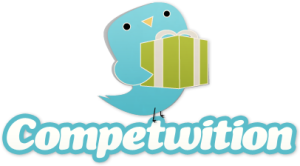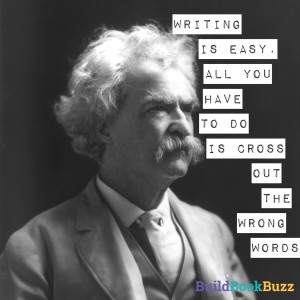Tools for novelists: Here are 5 of the best
Mark Twain said, “Writing is easy. All you have to do is cross out the wrong words.”
Because that’s harder than it sounds, you need all the help you can get writing that next great novel.
Technology gives you advantages that Twain never had. But what are the best tools for novelists? Here are five every fiction author should be using — which one can you incorporate into your process today?
2 writing tools
Let’s start with two tools for writing.
 Evernote
Evernote
Do you do online research? Or do you struggle to find book-related notes, files, and images on your computer? Evernote will change your life (voice of experience talking here . . . ).
The software uses “notebooks” to organize and curate all types of content you assign to each notebook – files, photos, URLs, e-mail messages, and so on. Clip web articles, capture handwritten notes, and snap photos to keep the physical and digital details of your book with you at all times. When I use it to write a book, I create a notebook for each chapter and file each chapter’s research accordingly.
I love that Evernote can run on multiple platforms and devices large and small. The program syncs content among all devices linked to your account so that you’re current no matter which device you’re using at the moment. A basic account is free.
 WordKeeperAlpha
WordKeeperAlpha
This is genius. Just genius. It’s the software I wish I had created.
As some of you know, I’m big on goal-setting. This web-based software lets you set — and keep! — writing goals. WordKeeper lets you set daily, weekly, monthly, or yearly writing goals and see your progress. As you see what’s realistic for your time and schedule, adjust your goals accordingly.
Need some encouragement? Connect with your friends on WordKeeper and let them cheer you on as you approach the finish line.
Your WordKeeper home page makes it easy for you to track your progress toward goals by displaying graphs of your writing by project and over time.
It’s free.
3 promotion tools
You probably know by now that no matter which publishing model you use, you are responsible for marketing, promoting, and publicizing your book. Here are three tools that are especially helpful to fiction authors, who often use different tactics from their nonfiction colleagues.
 Rafflecopter
Rafflecopter
Lots of novelists like to run book contests, and this fun tool makes the process a lot easier. Rafflecopter is a free service that lets you customize and embed an entry form anywhere HTML is accepted, whether that’s on your blog, Facebook page, or another social network. Site visitors will use it to perform tasks that get them entered into your contest.
Follow the instructions to customize your Rafflecopter widget and place it where you want it. During the set-up process, you provide the promotion details and add the prize. Rafflecopter gives you the HTML code you need to copy and paste into your site. Then you start collecting entries — it’s that easy. The system will even pick a winner for you.
The best way to understand how it works – and how you can use it for a book contest – is to see it in action. The Rafflecopter blog offers a helpful video demonstration.
 Competwition
Competwition
Competwition creates and supports Twitter contests. Just log-in to the site with your Twitter account, follow the instructions for creating your competition, and let Competwition supplement your own promotion efforts by promoting it to its (currently) more than 61,000 followers.
Once Competwition users enter your contest, they will automatically follow you on Twitter and tweet the message you chose when you set up your contest. It’s hard to believe there’s no charge, isn’t it?
 HubSpot’s Blog Topic Generator
HubSpot’s Blog Topic Generator
Coming up with blog post topics can be a challenge for any blogger. This cool tool provides quick and easy assistance.
Just enter three nouns into the form, select “give me blog topics,” and tweak the resulting list of five topics so they’re useful to you and your readers.
Will it always create just the right topics for your blog? No. But it’s a good start. And it’s free.
What’s your favorite tool for novelists? Please share it by commenting.
Like what you’re reading? Get it delivered to your inbox every week by subscribing to the free Build Book Buzz newsletter. You’ll also get my free “Top 5 Free Book Promotion Resources” cheat sheet immediately!


I think the writer’s greatest tool is imagination. Not long ago, I looked out my family room window, and noted all the things to write about within my own eyesight. What’s behind the garage door? Does the fence keep others out, or keep me in. Did the flowers eat the bee? Did you hear the grass grow? There’s nothing about which you can’t write something. And like any artist, writers will find a unique way of telling that story.
Is there an app for that, Michael?
; )
Sandy
Sandy,
What kind of Twitter contests have you run with Competwition? What kind of Twitter contests work well for authors?
Susan, are you writing novels now? I’d love to learn more!
Sandy
I’ve only published one book so far. Brittany’s Rose. I’m currently working on my first romance novel. So, I’m still new at this, but what I’ve found so helpful is the dictionary. When I want to describe something, I look up the definition of the word and work that into the sentence instead of the word. It stimulate the imagination. I will look into the tools I just read about. 🙂
That’s clever, MJ!
Sandy
I think my topic isn’t mainstream enough for the blog topic generator. The suggestions were pretty funny, including 10 Things Your Boss Wants You To Know About Vikings. *snort*
Thanks, Pam. You made me laugh!
One thing to think of: How can you tweak that topic a bit so it’s a fit for you? I don’t know enough to offer any good guesses, but it could be something like, “10 things historical fiction fans need to know about Vikings.” My point is, you can take these seemingly off-the-wall topic suggestions and use them as a jumping off point to create an idea that WILL work.
But again…thanks for the laugh!
Sandy
Thanks for those very useful tips, Sandra! I’d like to mention Scrivener. As an author (with no connection to the company, by the way) I’ve found it to be indispensable. It’s essentially a word processor developed specifically for authors. But it does so much more than handle text well on a chapter by chapter basis; it organises your research in folders as you wish, it outputs formatted versions of your finalised text in a wide range of publication ready formats (paperback, mobi, EPub, etc) and does a whole lot more. It’s not free but, in my view, it’s worth every penny.
Seb, I’m so happy to hear you rave about Scrivener! I have purchased it, but haven’t used it yet. I’m looking forward to learning how to use it effectively.
Thanks for adding it to this list and for taking the time to comment.
Sandy
This is so helpful, Sandy! I just started my third year of blogging and am writing my third Indie Kid Lit book, so I want ideas to stay fresh. I used Rafflecopter before and love it. The Twitter tool is new to me, and it is now on my to-do list for my for book launch. I feel overwhelmed by Evernote. I file information In Dropbox and Google Drive, and they have served me well. Does Evernote have significant advantages over folders on such cloud drives?
Cat, do you do any online research for your kid lit books? If so, Evernote can help you keep track of the content you find online. It’s like using “favorites” in your browser and sending links into folders, but I find Evernote much easier to use than the favorites option. It’s easier to clip and save into the right notebook (the equivalent of a folder), then access that content later, because you see more than a URL — you see the whole page that you clipped.
Sandy
Thanks for explaining the research advantage, Sandy. I will give Evernote another try!
You’re welcome! I hope it helps.
Sandy